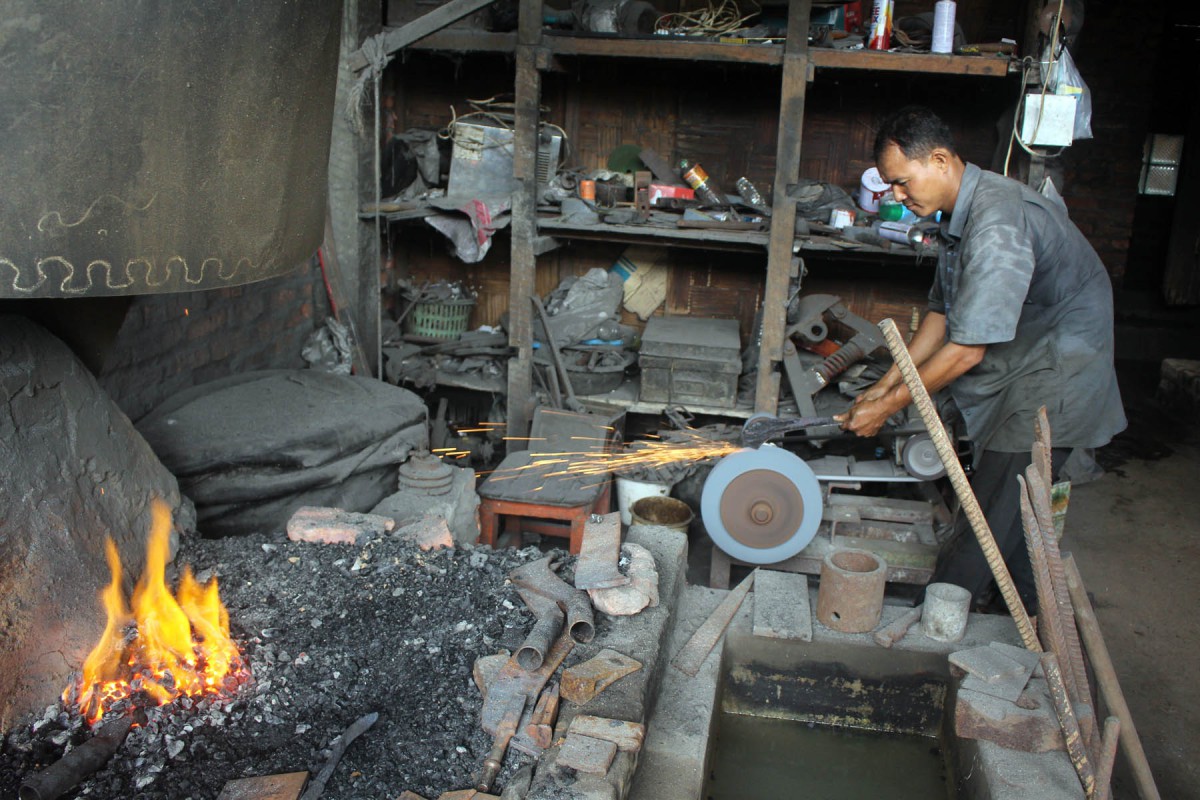Industrial slowdown hits Mandalay, Sagaing as more than 120 iron factories cease Htet

50

Nadi/Pearl (NP News) - Nov 26
According to information obtained from entrepreneurs interviewed by The Statesman, more than 120 small-scale iron smelting and forging factories in Mandalay and Sagaing industrial zones have been shut down due to quality standards.
They have been shut down for more than six months, as officials have ordered them to stop production while new standards are being implemented, citing the low quality of domestically produced iron and steel and have been unable to meet the requirements.
A business owner told The Statesman that “After the major Mandalay earthquake, when buildings collapsed, the authorities started looking for the cause. When they investigated, the engineers without involving anyone else held meetings among themselves, and then they blamed the small ethnic-owned businesses, the small-scale operators producing iron rods and cast iron. They claimed Myanmar-made iron billets were of poor quality and that this was why the buildings collapsed. Once such comments came out, factories were told they could no longer sell these products. They said the products did not meet the required standards. During the period when new standards were being drafted, operations had to be halted. Because of that, the factories were confused and eventually stopped operating. Policies that should have applied to large factories were imposed on small workshops as well. Now that the new standards have been issued, anything that doesn’t meet them cannot be produced. So both the Sagaing and the Mandalay industrial zones have stopped operating. Everything has now come to a complete halt.”
These traditional small-scale iron smelting and forging factories produce man-made iron billets weighing less than one ton and they are used only in the construction of small buildings.
“Myanmar local steel is of a quality that matches its intended use. No one builds high-rise buildings with it. It is used for flooring, toilets, and kitchens. It is only used for small structures. In some areas, they build cowsheds and one-story buildings. In fact, engineers are most responsible for the collapse of buildings. When they started blaming Myanmar iron billets, the permit system came in. When the permit service providers appeared, people rushed to apply for permits, causing more markets to collapse. These traditional small businesses could not understand what technology they were talking about. The officials' plan could be realized with foreign investment. Large factories pour tons of steel with cranes. Our industry produces it manually, with not more than one ton a bar, just a small business. Entrepreneurs want standards that are consistent with Myanmar,” he said.
Currently, more than 100 factories in the Mandalay Industrial Zone and more than 20 factories in the Sagaing Industrial Zone have been shut down, affecting a total of more than 1,300 workers. In order for entrepreneurs to resume operations, it is required to set the norms for the steel produced by these factories in line with the standards for use in small buildings.
“There are 22 registered factories in Sagaing Industrial Zone. In Mandalay, there are three large factories, which are up to the standards of Myaungtagar. They are big foreign investments, and Myanmar workers are only in the form of general workers. Those factories are running with Chinese experts and Chinese workers. Small Myanmar-made iron smelting and forging factories have all stopped. Mandalay Industrial Zone has thousands of workers. Sagaing Industrial Zone has three to four hundred workers. Most of the workers are skilled workers from Ngazun. When there is no work, they return to their villages. Some people have joined terrorist groups there. Other factories are also moving due to the road condition, the Sagaing Industrial Zone may close by the end of this year,” he continued.
Negotiations are underway to establish internationally accredited laboratories in Yangon Region, Mandalay Region, Sagaing Region and Naypyidaw council territory to test the quality of iron and steel products, including the National Building Code, as set forth by the Ministry of Construction. Initially, preparations are underway to establish national-level laboratories in Yangon and Mandalay Regions.